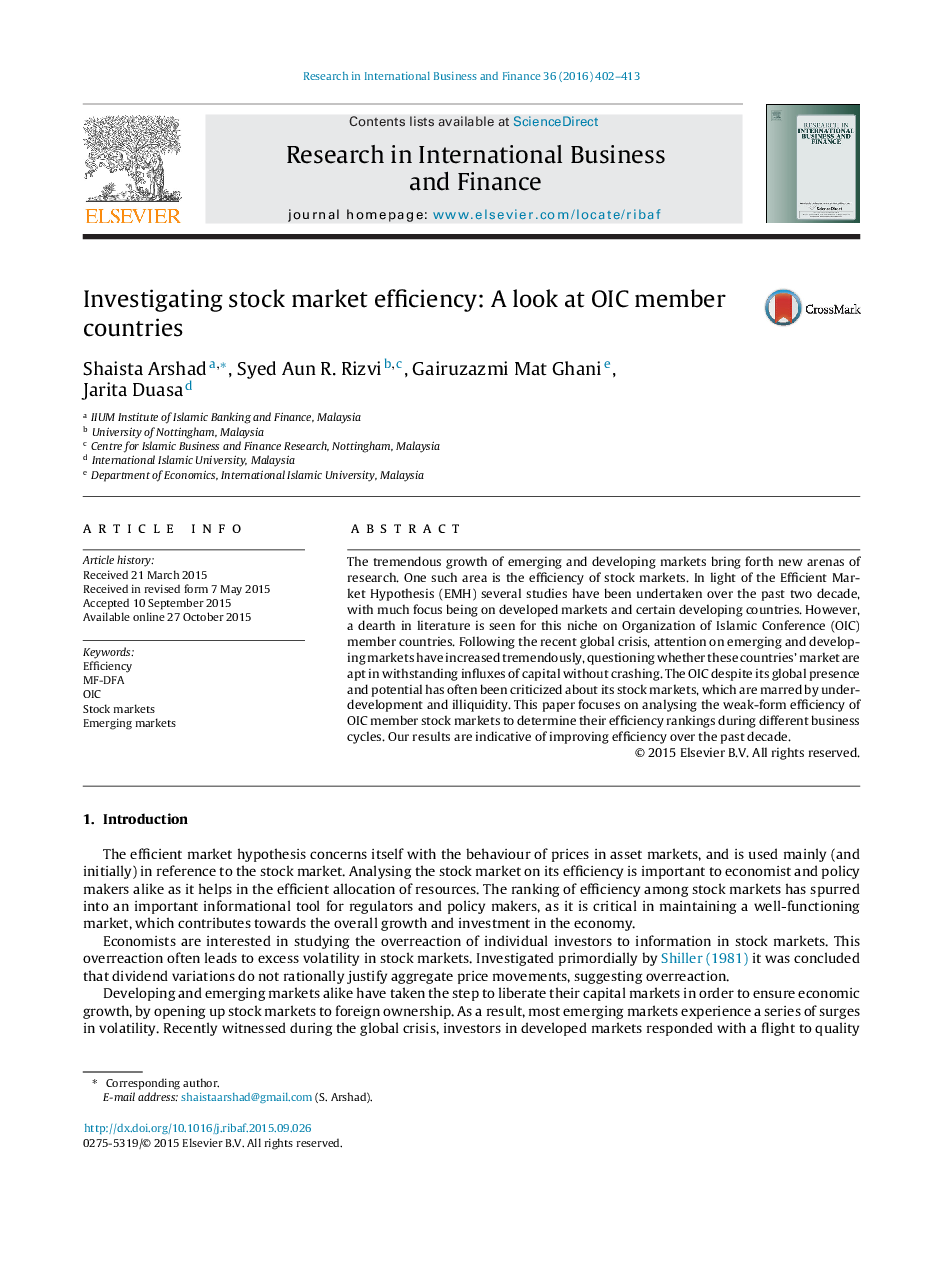| Article ID | Journal | Published Year | Pages | File Type |
|---|---|---|---|---|
| 1003524 | Research in International Business and Finance | 2016 | 12 Pages |
•Compared efficiency of 11 OIC Member countries for the period of 1998–2001 during different business cycles using MF-DFA.•Overall improving efficiency throughout sample period.•Efficiency is higher during periods of economic boom than busts.•Not devastated by global economic crisis owing to little or no involvement with affected developed countries.•Shows promising aptitude for further development and inter-region trading.
The tremendous growth of emerging and developing markets bring forth new arenas of research. One such area is the efficiency of stock markets. In light of the Efficient Market Hypothesis (EMH) several studies have been undertaken over the past two decade, with much focus being on developed markets and certain developing countries. However, a dearth in literature is seen for this niche on Organization of Islamic Conference (OIC) member countries. Following the recent global crisis, attention on emerging and developing markets have increased tremendously, questioning whether these countries’ market are apt in withstanding influxes of capital without crashing. The OIC despite its global presence and potential has often been criticized about its stock markets, which are marred by underdevelopment and illiquidity. This paper focuses on analysing the weak-form efficiency of OIC member stock markets to determine their efficiency rankings during different business cycles. Our results are indicative of improving efficiency over the past decade.
